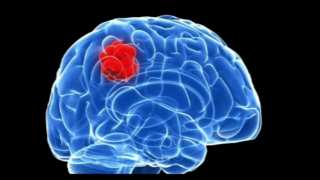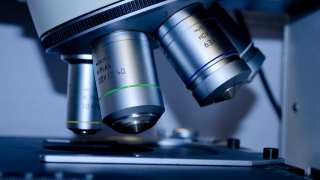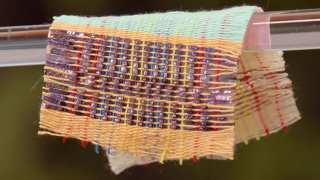Sleep deprivation is regarded as a major public health issue, by those who study it and its effects at least. Research has shown that life-threatening mistakes for patients made by resident physicians can increase as much as seven times over in response to sleep-robbing schedules for these doctors. Sleep deprivation is linked to deficits in cognition, memory and vigilance, and is as a result discouraged in people who work in areas such as heavy industry and nuclear power. Others, however, are somehow expected to develop superhuman resistance to the effects of lost sleep (even though those who make such arguments fail to offer safe, sustainable solutions that would enable these professionals to do so).
Sleep deprivation affects everyone in different ways; nevertheless, it continues to be strongly associated with doctor error, as well as other public health problems such as motor traffic incidents, obesity and cardiovascular disorders. New research, led by Dr. Itzhak Fried of the Departments of Neurosurgery, Psychiatry, and Biobehavioral Sciences at University of California (Los Angeles), show that some neurons in specific locations exhibit impaired functions in vigilance tasks following sleep deprivation and immediately preceding cognitive deficits. This may indicate that sleep deprivation has a profound impact on certain important brain regions at the cellular level.
The American Institute of Medicine has maintained for some time, based on research it had commisioned, that phyisicians – particularly younger residents – cause more inadvertent injury to patients and are involved in more motor vehicle accidents as a result of sleep deprivation. A 2006 study involving over 2,700 first-year residents reported that one in twenty made mistakes that led to the death of a patient due to fatigue. In fact, the role of sleep deprivation in dangers such as these has been acknowledged by researcher for nearly 50 years now. As a result, some leading sleep medicine scientists campaign to changes in the working structure and culture for doctors embarking on a career in hospital-based care. However, other authorities argue that physicians of many specialities may have to learn to live without regular sleep as normal to complete tasks such as lengthy surgeries. Therefore, the role of research that forges a conclusive link between cognitive deficit and sleep deprivation is vital in changing such minds.
A new example of such studies has been completed as a result of collaboration between neuroscience laboratories and colleges in Paris, the University of Wisconsin, Tel Aviv and UCLA. The researchers involved were granted access to patients who had consented to undergo neurosurgery and tests of psychomotor vigilance (PVTs). The PVT involved telling images including people or animals from those that did not. As a result, the scientists were able to study the responses of individual neurons (functional brain cells) in the medial temporal lobe (MTL), a region related to ‘recording’ the images seen, to the task. These neurons exhibit ‘spikes’ in readings that result from their activity in tasks such as PVTs. The patients underwent multiple PVT tests, including one following a night without sleep.
The results of this study showed that PVT completion was impaired following sleep deprivation compared to completion after sleeping as normal. In addition, the ‘spikes’ associated with MTL neuron activity during PVT were found to be slower, more drawn-out and generally weaker after sleep deprivation. These changes in neuronal function also occurred just prior to the reduced cognitive performances seen in PVT following sleep deprivation. The neurons also displayed different levels of activity during these cognitive lapses. Such activity is correlated with impaired brain-cell performance (and is known as slow or theta-wave neuronal activity), and was also more comparable to the baseline activity recorded at the start of the experiment.
These results indicate that sleep deprivation is directly linked to specific changes in localised areas of the MTL, and that these immediate precede impaired cognitive performance. Previous research has shown that cognitive and behavioural ‘slowdowns’ linked to sleep deprivation may be related to areas of the brain that link areas such as the thalamus and frontal lobe. This new study appears to indicate that a lack of sleep affects even more specific brain areas. Research has also demonstrated that the slow/theta-wave activity seen in the MTL during sleep deprivation is also similar to brain-cell activity during sleep, and is also linked to impaired behavioural responses while awake. In other words, some neurons may ‘think’ the brain is in fact asleep during sleep deprivation, and thus don’t respond as they would during normal working hours if the brain has been robbed of sleep. Alternatively, they ‘know’ that they shouldn’t be expected to work as normal in the absence of sleep, and attempt a sleep-like slowdown in ‘protest’ at such conditions.
The work of Dr. Fried and his collaborators may give an insight into how the brain responds to less sleep than normal, even at the cellular level. On the other hand, this study involved a severely reduced group of participants in less than normal conditions, and was conducted under conditions of only one night of lost sleep. More extensive studies on the same variables, possibly involving more participants, may be needed to validate these findings. However, this has a number of logistical and ethical barriers, as do many similar neurological studies. On the other hand, it remains an important and viable study showing the potentially negative effects of sleep deprivation on the human brain.
Top image: Sleep deprivation. (CC BY-NC-SA 2.0)
References:
Czeisler CA. Medical and Genetic Differences in the Adverse Impact of Sleep Loss on Performance: Ethical Considerations for the Medical Profession. Transactions of the American Clinical and Climatological Association. 2009;120:249-85.
Nir Y, Andrillon T, Marmelshtein A, Suthana N, Cirelli C, Tononi G, et al. Selective neuronal lapses precede human cognitive lapses following sleep deprivation. Nature Medicine. 2017.







No comment